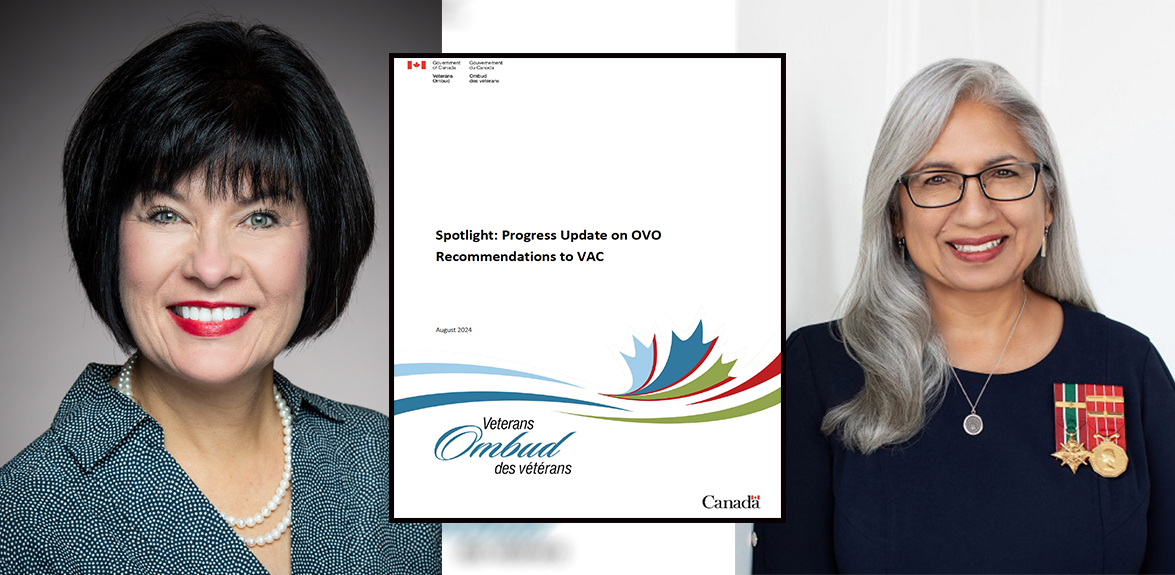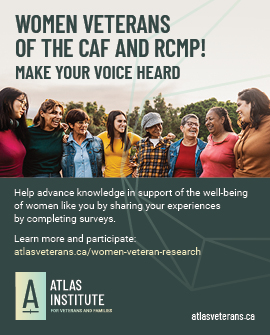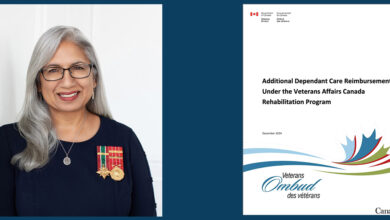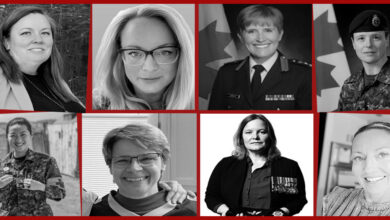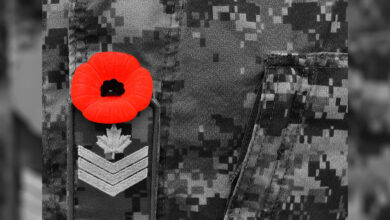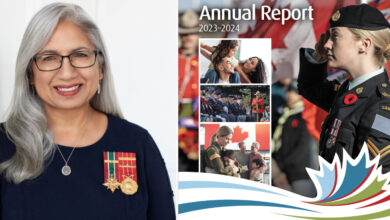Veteran
Veterans Ombudsman Releases Report Regarding Veterans Affairs Canada
Veterans Affairs Canada (VAC) has made considerable progress in reducing its backlog of disability claims applications, and meeting published service standards, according to a report published by the Veterans Ombud benchmarking the office’s progress in the last year.
The report, 2024 Spotlight: Progress Update on OVO Recommendations to VAC, follows up on recommendations made to VAC about addressing systemic gaps and barriers to access VAC services by Veterans and their families.
The OVO, Office of the Veterans Ombud, has been reporting on VAC’s implementations since 2017.
This year, the OVO acknowledged significant improvement in many areas. However, much work remains for the government organization.
“There is still much to do on a number of outstanding recommendations, and we will continue to call on VAC for action in addressing fairness issues affecting the Veterans community,” read a statement from the OVO on the release of the report on August 21.
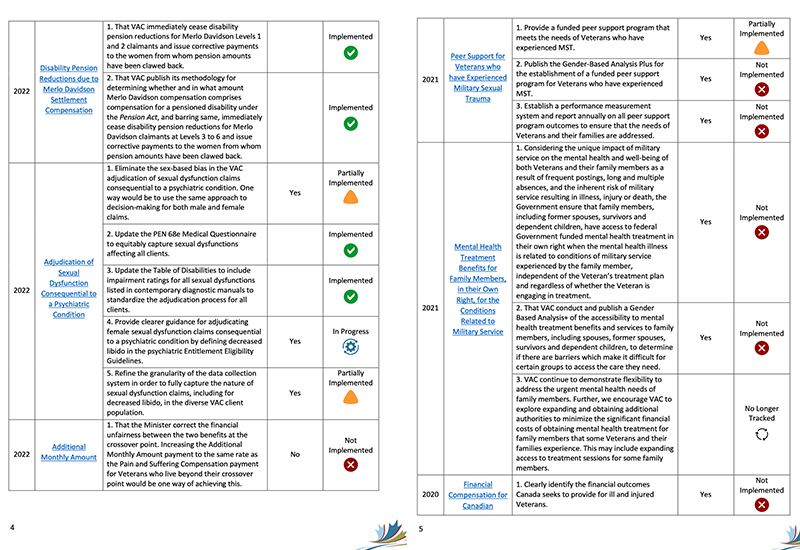
Timely decisions Being Made
In its report, the Office of the Veterans Ombud highlighted notable progress VAC has made regarding recommendations made. Notably, VAC has made “tremendous” progress in reducing its backlog of claims and meeting its published service standards, states the report.
The report assessed progress made in the 2023-2024 fiscal year.
According to the statistics, Disability Benefit first applications went from being completed at a 61 per cent rate in the first quarter to 73 per cent in the third quarter.
There is much work still needed to be done in this regard, noted the report.
“However, wait times for disability benefit decisions continue to be the number one complaint our Office receives. We will continue to monitor these wait times as well as wait times in other areas impacted by the increased number of disability benefit decisions.”

Advancing Gender Equality
VAC has also made significant strides in eliminating gender inequality when it comes to sexual dysfunction claims. Additionally, there are plans underway to ensure that detailed and understandable information regarding Pain and Suffering Compensation benefits is circulated.
Specifically, the sexual dysfunction claims consequential for psychiatric conditions have been fully or partially implemented with plans to fully implement all recommendations, notes the report.
Additionally, VAC is in the process of updating the Psychiatric Entitlement Eligibility Guidelines. However, there is still work to be done in this area, too.
“In addition, while the Veterans Ombud acknowledges that VAC has made progress on issues affecting gender equity, more transparency in gender-based analyses would be beneficial in establishing and monitoring the programs and benefits for all Veterans. Specifically, making public the results of GBA Plus analysis that considers the intersectional needs of an increasingly diverse population would provide an important opportunity to demonstrate transparency and responsiveness to the Veteran community,” reads a statement by the OVO.
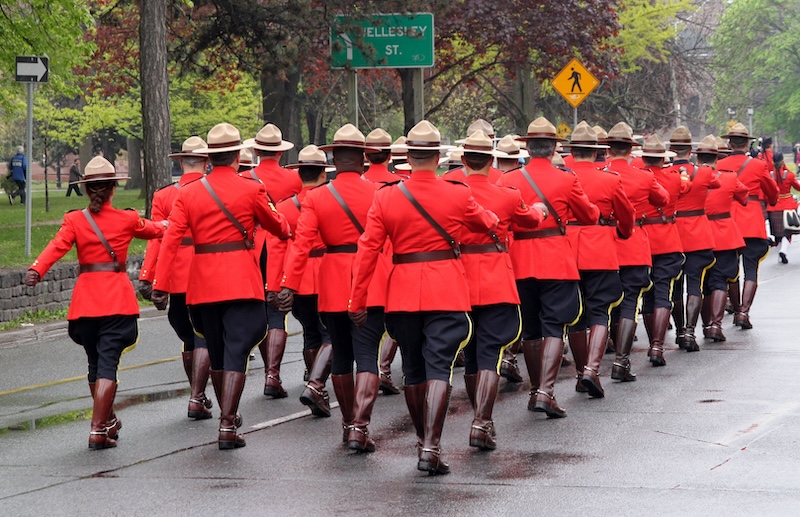
Advancing the Cause of Women Veterans of RCMP
The third most notable stride VAC has made in recommendations by OVO is responding to unfair outcomes for women veterans of the RCMP. The women are also Merlo Davidson settlement claimants.
“In response, VAC reached out to all disability pension recipients who self-identified as recipients of Merlo Davidson compensation to offer them the opportunity to provide more information about their settlement compensation.
“Where VAC found some or all of the settlement compensation was not for the same pensioned disability they re-calculated the reduction amount issued a corrective payment and corrected the disability pension amount going forward,” stated reports.
The Merlo Davidson class action settlement concerned gender and sexual orientation-based harassment and discrimination of female RCMP members and public service employees in the workplace from 1974 to 2017.
Read or download the full report here.


